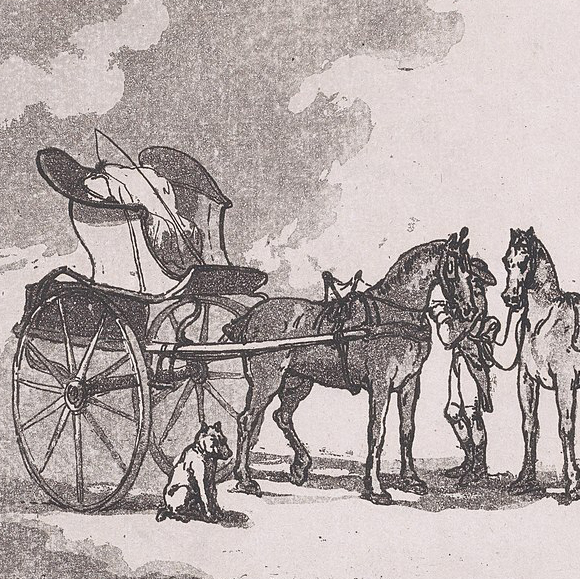Post Chaises in Barkway
The era of the stagecoach lasted from the early 1600s through to the advent of the railways from around 1830 onwards. What is possibly not so well known as part of the general travelling options available is the existence of the post chaise.
A good example of the post chaise availability is given by that of the Barkway pub, the unusually named Chaise and Pair, which closed its doors in the 1990s. The Chaise and Pair stood at 1 High Street, and was opened about 1750 by James Smith as the
White Swan. We have a copy of a trade card from the 1700s issued by him with the sign of a white swan, advertising his establishment as a source of neat post chaises for hire. The use of the word neat in this context was common at the time and is said to refer to their “elegance”. In 1842 it was bought by brewers Fordham of Ashwell, and renamed the Post Chaise, but in 1852 it was renamed again as the Chaise and Pair. (Having relinquished the Swan name, this was taken up by the next-door inn in the 1800s).
Post chaises provided an expensive alternative to the stagecoach. They were normally a 2 or 4 horse small, enclosed carriage. These could be hired along with a postilion who would ride the nearside horse, leaving the 1 or 2 passengers inside with a clear view of the road ahead. It is entirely likely that landed estates such as Newsells and Cokenach had their own versions of the post chaise, but only for their own use of course.
If the stagecoach service could be thought of as akin to a modern bus service, then the post chaise was akin to a taxi service. As well as being expensive, the post chaise was faster, and more comfortable. They were normally painted yellow. If the hirer had his own footman, then they could be accommodated at the rear. With her footman in attendance travel could also be arranged by a single woman in safety.
The post chaise system operated much in the same way as the main coaching system, with stop points or stages being at the same locations. Following a change of horses, the postilion may have continued, or a new one taking over.
© The Barkway Local History Group
